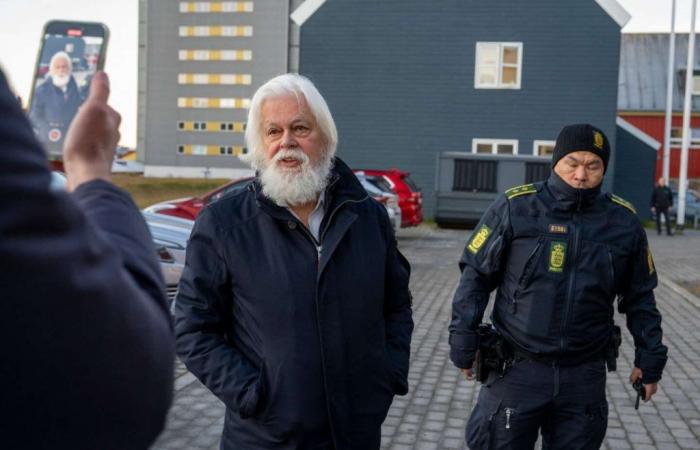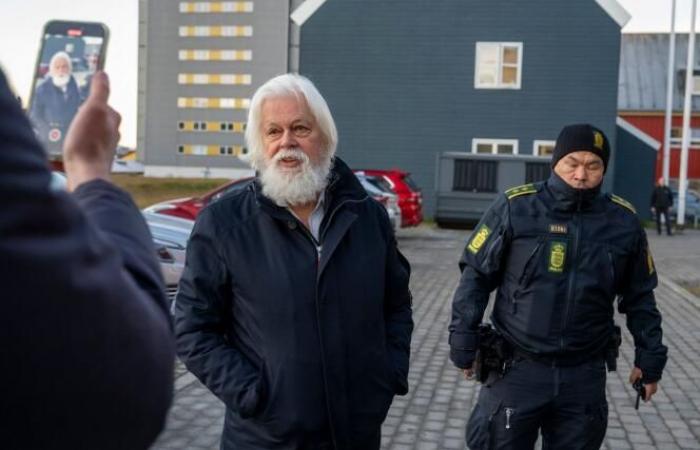Paul Watson will still have to wait to decide on his fate. The third request for release filed by his lawyers was rejected on Wednesday October 2 by the court in Nuuk, capital of Greenland where the Canadian marine biodiversity defender has been incarcerated since July 21. Local justice considers that he must remain behind bars for three more weeks, until October 23“in order to ensure his presence in the context of the extradition decision” claimed by Japan from Denmark, a kingdom of which Greenland is a part.
This extension of imprisonment is “disproportionate”, retort his defenders, in view of the accusations against him. Aged 73, Paul Watson is, according to them, the victim of an affair “assembled from scratch”. “The Danish authorities must realize that his detention and possible extradition are illegal. There is a shocking discrepancy between what this man is accused of and what he is being subjected to. In Japan, he would end his days in prison for acts that did not take place, this country not offering the basic guarantees required for a fair trial.says François Zimeray, one of his lawyers, former French ambassador to Copenhagen between 2013 and 2018.
“This is all based on a false accusation made by a criminal enterprise, the Japanese whaling industry,” said Paul Watson as he entered court on Wednesday. In the eyes of Tokyo, the founder of the NGO Sea Shepherd est responsable “forcible obstruction of trade, bodily harm, trespass on a vessel and vandalism”for damage and injuries caused in 2010 to a Japanese whaler and its crew in the Southern Ocean. A vessel supposedly dedicated to research, and not to cetacean trade, banned since 1986 by the International Whaling Commission.
A “complex” situation
The relatively short extension of the incarceration seems to confirm what the Danish Ministry of Justice had suggested in recent hours, namely that the Copenhagen verdict on extradition should now not be delayed any longer. Until then, Greenlandic magistrates clearly prefer to remain cautious, knowing that in 2012, Paul Watson vanished into thin air after being placed under house arrest in Germany.
Read also | Article reserved for our subscribers Why environmental activist Paul Watson was arrested in Greenland
Add to your selections
“The attitude of the Greenlandic judges can also be read as a provincial affirmation of sovereignty and independence with regard to the former Danish colonial power,” observes a lawyer involved in this case, on condition of anonymity. The arrest of the whistleblower would indeed have taken place at the initiative of Greenland and the Faroe Islands, two independent countries constituting the Kingdom of Denmark. The extradition procedure is certainly in the hands of Danish justice, but the latter must rule in Greenlandic law.
You have 34.07% of this article left to read. The rest is reserved for subscribers.







